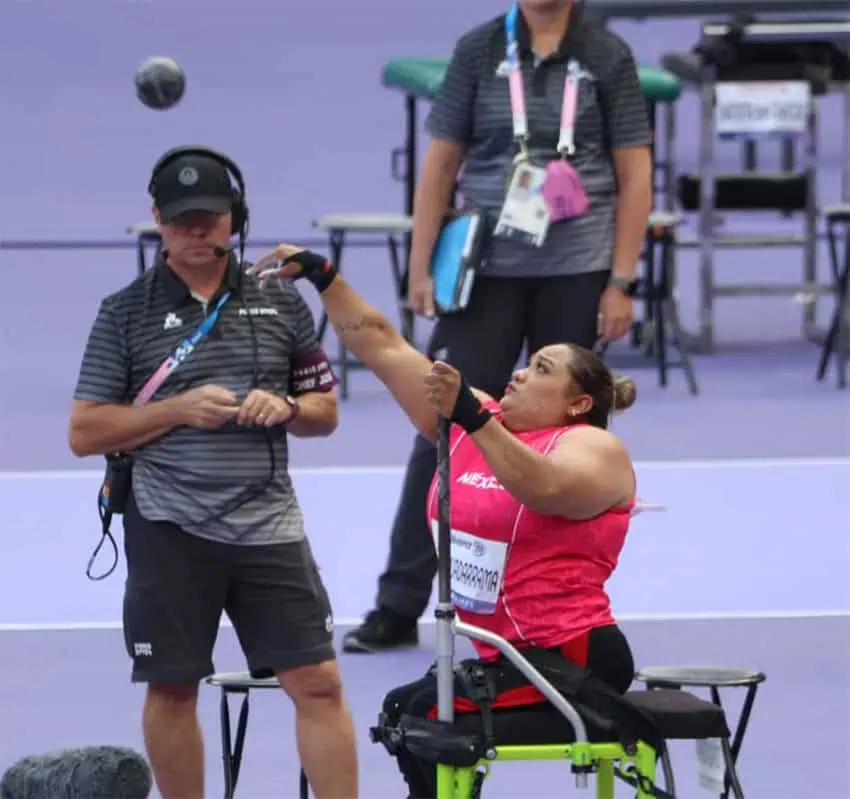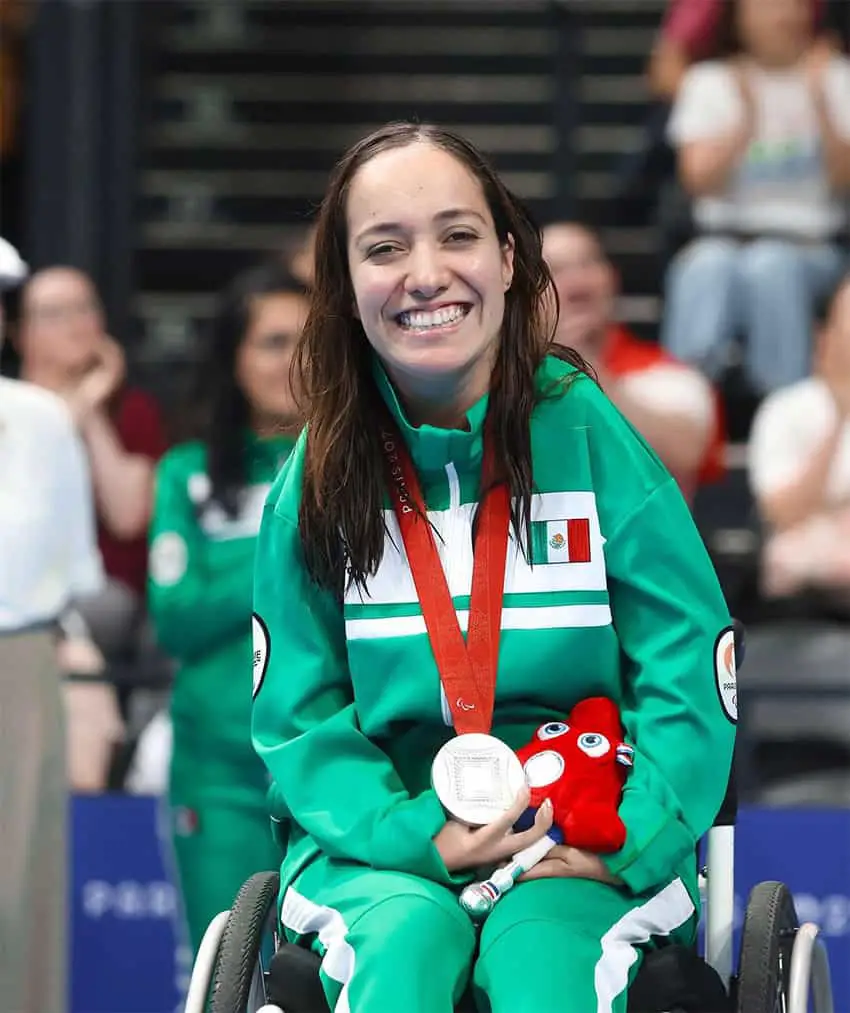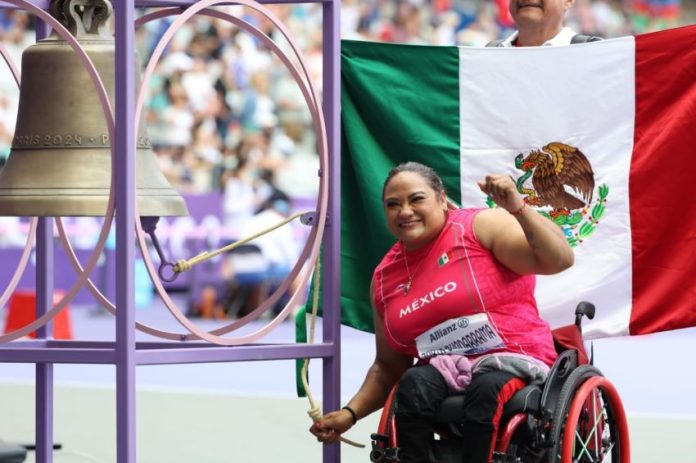Shot putter Gloria Zarza Guadarrama has given Mexico its first gold medal of the 2024 Paris Paralympic Games, which opened last week and will conclude on Sunday.
Zarza, a 40-year-old from the state of México, won the F54 shot put on Monday with a top throw of 8.06 meters from her wheelchair. Of seven competitors, she was the only one who cleared the eight-meter barrier, surpassing it twice in her six attempts.

The silver went to Elizabeth Gomes Rodrigues of Brazil (7.82 meters), and Nurkhon Kurbanova of Uzbekistan took the bronze (7.75 meters).
F54 refers to a disability classification for people who compete events such as discus, shot put and javelin from a seated position. Many have spinal cord injuries.
Zarza, who has a hip dislocation resulting from polio, took up sports at age 28, starting with basketball and moving into shot put and other field events.
Her winning distance at the Stade de France equaled the 8.06 meters she achieved at the Tokyo Paralympics three years ago, which earned her a silver medal there.
“I feel very happy, very pleased [to win] the first gold for Mexico,” said Zarza, a native of San Miguel Zinacantepec, México, who celebrated her 40th birthday on Aug. 20. “I didn’t hold back. I gave everything until the last moment.”
After the event, Zarza got to ring the iconic champions bell, she recounted enthusiastically in an interview with Mexico’s National Commission for Physical Culture and Sport (Conade).
“In the stands, I saw some people carrying the Mexican flag and shouting my name,” she added. “I don’t know them, but how great to know that there are Mexican people here.”
In May of this year, Zarza established she’d be the one to beat in Paris by placing first at the World Championships in Kobe, Japan, with a toss of 8.04 meters. Now three months later, she has a Paralympic gold, as well.

“I have worked hard for this,” Zarza said. “I always told myself that I had to train: There is no escaping the pain, there is no tiredness. I always woke up dreaming of [the gold] medal.”
With six days to go at this year’s Paralympics, the Mexican contingent has one gold, three silver and five bronze medals. Each includes “Paris” and “2024” written in universal Braille.
With a total of nine medals through Monday, Mexico’s team of 37 women and 30 men was tied with Iran for 21st in total medal count. The table was topped by China (85 medals/42 gold) followed by Great Britain (53/29) and the United States (42/13).
Mexico’s medal haul includes two silver medals by swimmer Haideé Aceves Pérez, a 31-year-old from Guadalajara, Jalisco. She placed second in both the 50-meter and 100-meter women’s backstroke events in S2, a category for athletes who have limited or no use of their arms, hands or legs.
Aceves began swimming as a therapy for multiple arthrogryposis, a congenital disease that causes limitations in arm and leg movement. She’ll also be competing in the S3 100-meter freestyle, starting with heats on Tuesday.
At the 2020 Tokyo Paralympics, Mexico placed 16th in total medal count with 22 (seven gold, two silver, 13 bronze).
With reports from El Universal, Proceso and N+
